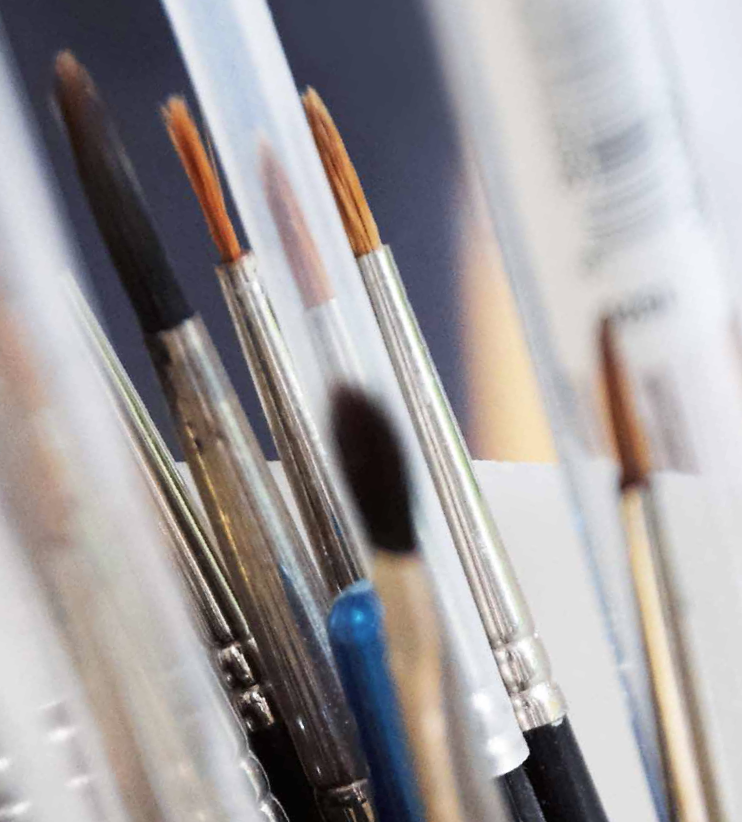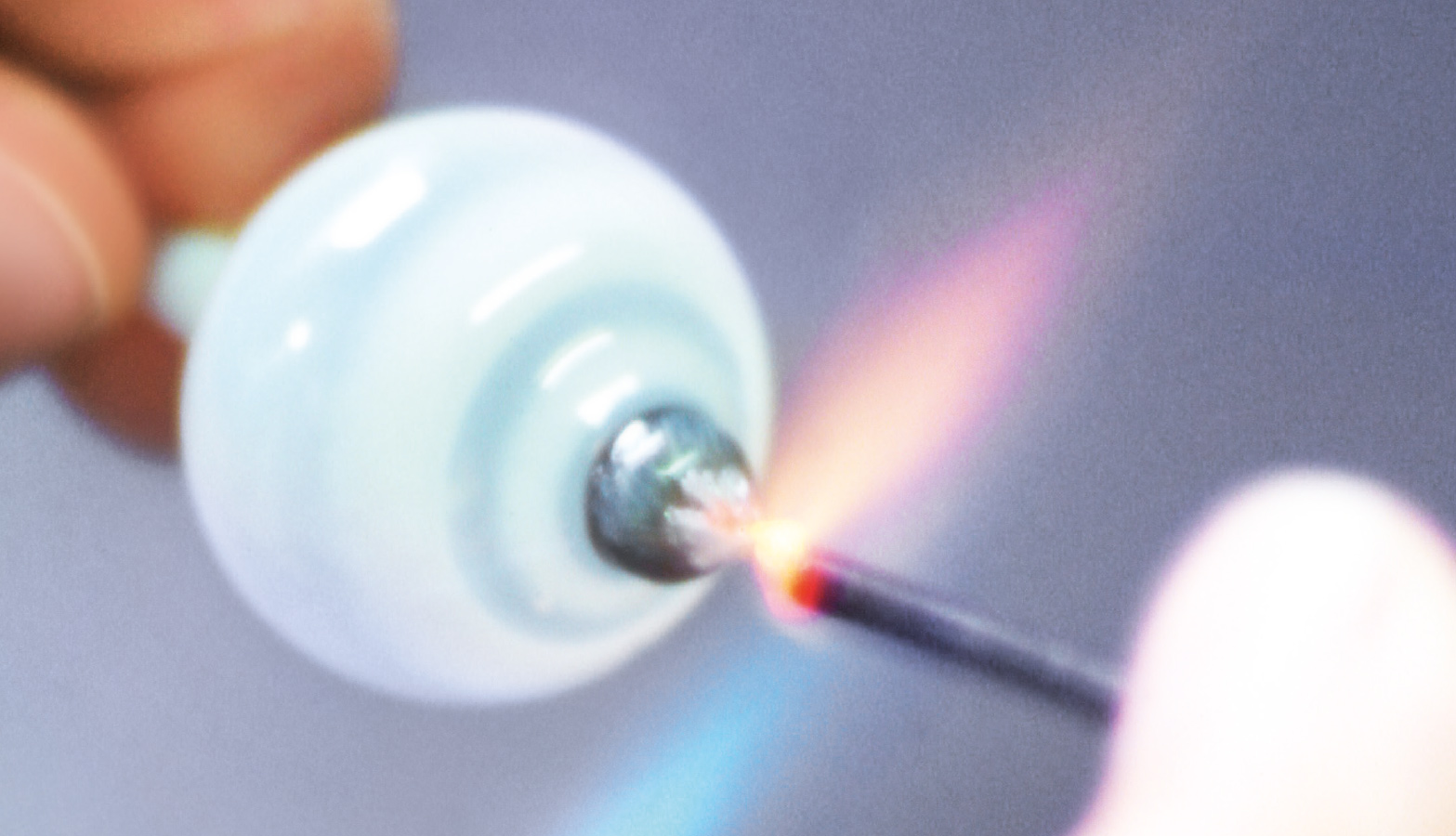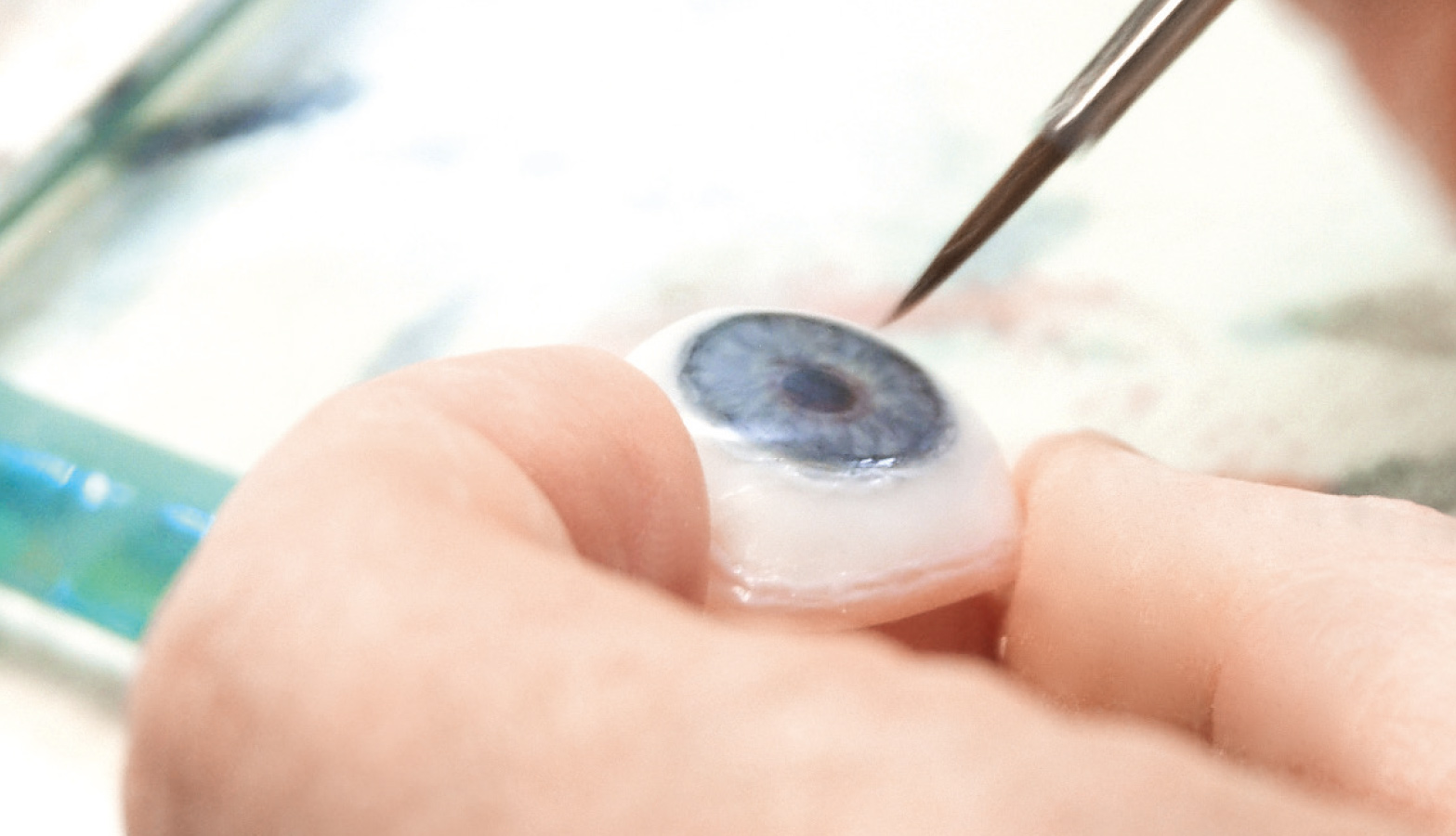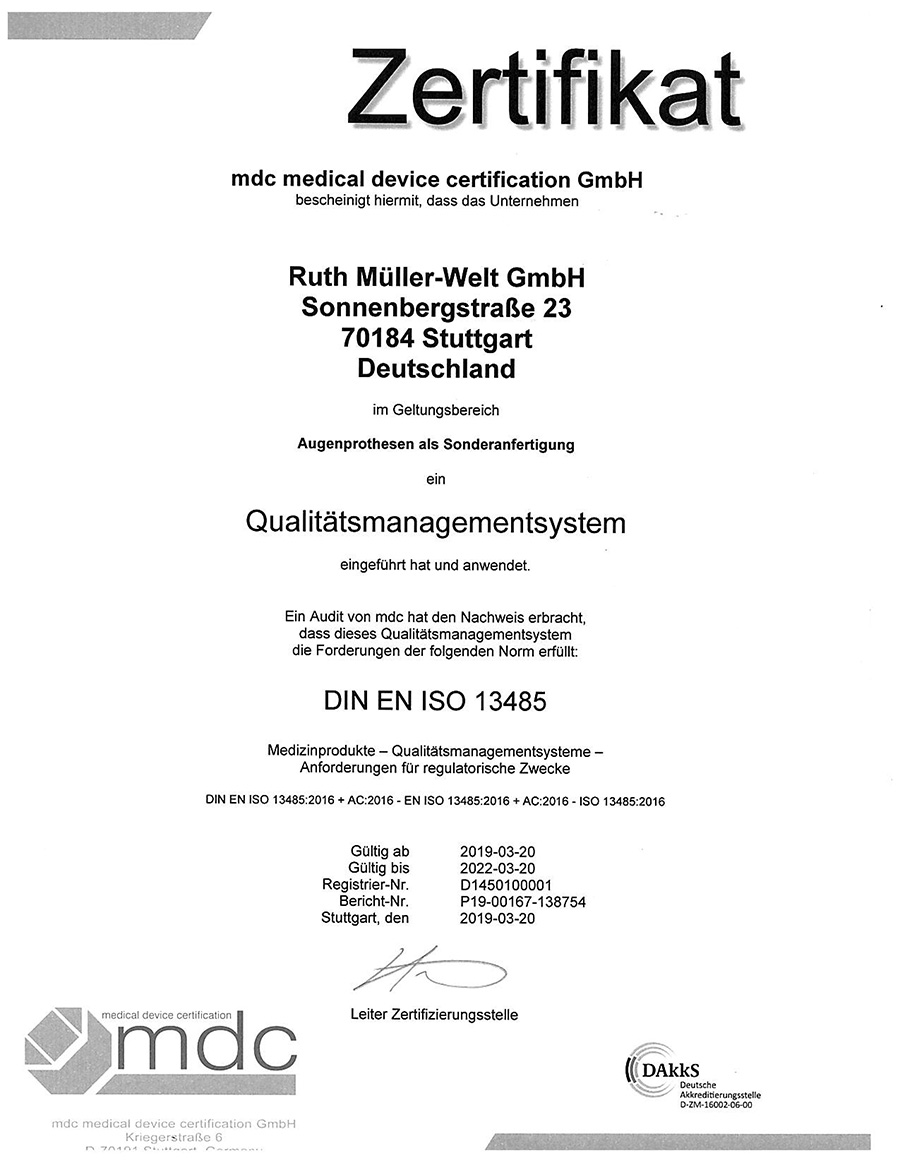
Tailored to your Needs.
Our Consultation Service
No two eyes are exactly alike, nor are eye sockets. That is why an eye prosthesis is always unique – individually handcrafted and carefully adapted to fit each individual orbit. Of course, this requires the prior detailed and careful consultation of each patient, irrespective of the reason of the loss of the eye, be it through illness, injury or due to a congenital defect.
This is why we offer our special advisory service: we’ll arrange an appointment which will also be attended by an ophthalmologist and oculoplastic surgeon at the Tübingen University Clinic, at the Bundeswehrkrankenhaus in Ulm or at clinics in Switzerland. This creates the best possible conditions for successful patient care from a medical perspective as well in terms of ocularistry.
After this careful process of preparation, we will recommend the most suitable type of prosthesis. For a prosthesis a prescription from a medical doctor will be required. If you are insured under a statutory health scheme, it will be your health insurer who, based on the solution recommend by us and the cost estimate which you will be asked to submit to your insurer, will decide over whether an acrylic ocular prosthesis will be made for you.

Cryolite Glass Prosthesis.
Cryolite glass has been proving its worth as a material for ocular prostheses for more than 100 years. Every single eye made from Cryolite glass is unique – it has been custom-shaped and features intricate artwork rich in nuance.
As Cryolite glass does not contain any harmful substances, nor does it cause irritation in the extremely sensitive eye socket. As it is hygroscopic and can retain some of the tear fluid on its surface, the prosthesis can move optimally in the socket giving it a much more life-like look.
Glass prostheses should be replaced every 1 to 2 years. Natural eye fluids, environmental factors and sundry changes in the eye socket cause the surface to become rougher with time and signs of wear will emerge. A prosthesis made from Cryolite must be maintained and handled with care.
Production of a plastic eye prosthesis

Artificial Eyes made from Polymethyl Methacrylate (PMMA).
We use a polymethyl methacrylate (PMMA) which is free from harmful substances and has very good compatibility with human tissue. With its high surface hardness, as it does not break and has very good sculpting properties, PMMA has been used in the manufacture of ocular prosthetics for decades with great success.
The modified impression technique employed by us at our Institute offers some crucial advantages: It is a method whereby the rear of a PMMA prosthesis can be fitted with utmost precision to the eye socket, with positive effects on eye motility. Because of the perfect fit no fluids will accumulate behind the prosthesis.
In contrast to their glass counterparts, acrylic prostheses can be worn for several years and be they can be modified anytime. They are easy to maintain and care for, only requiring polishing once a year.




